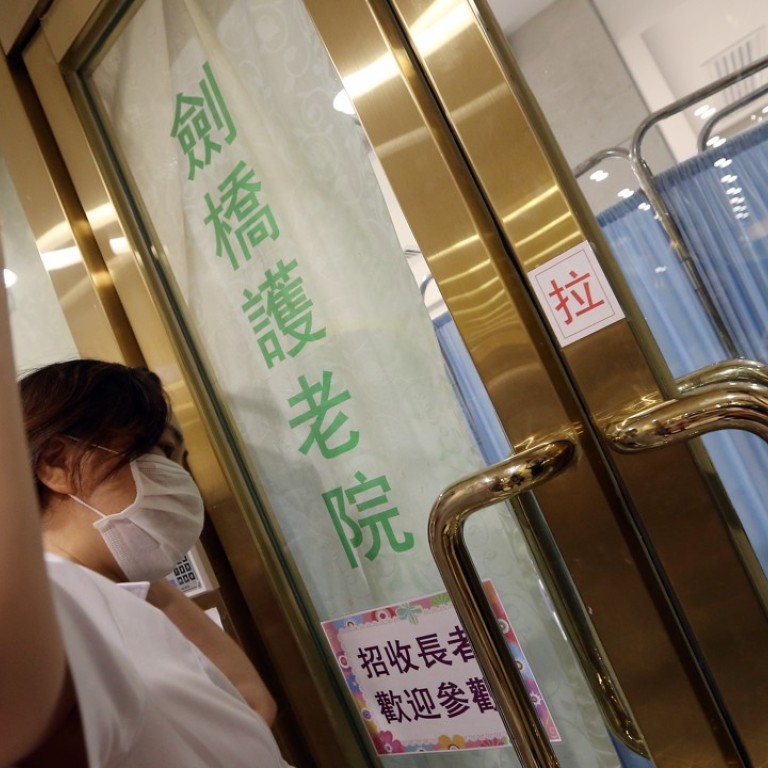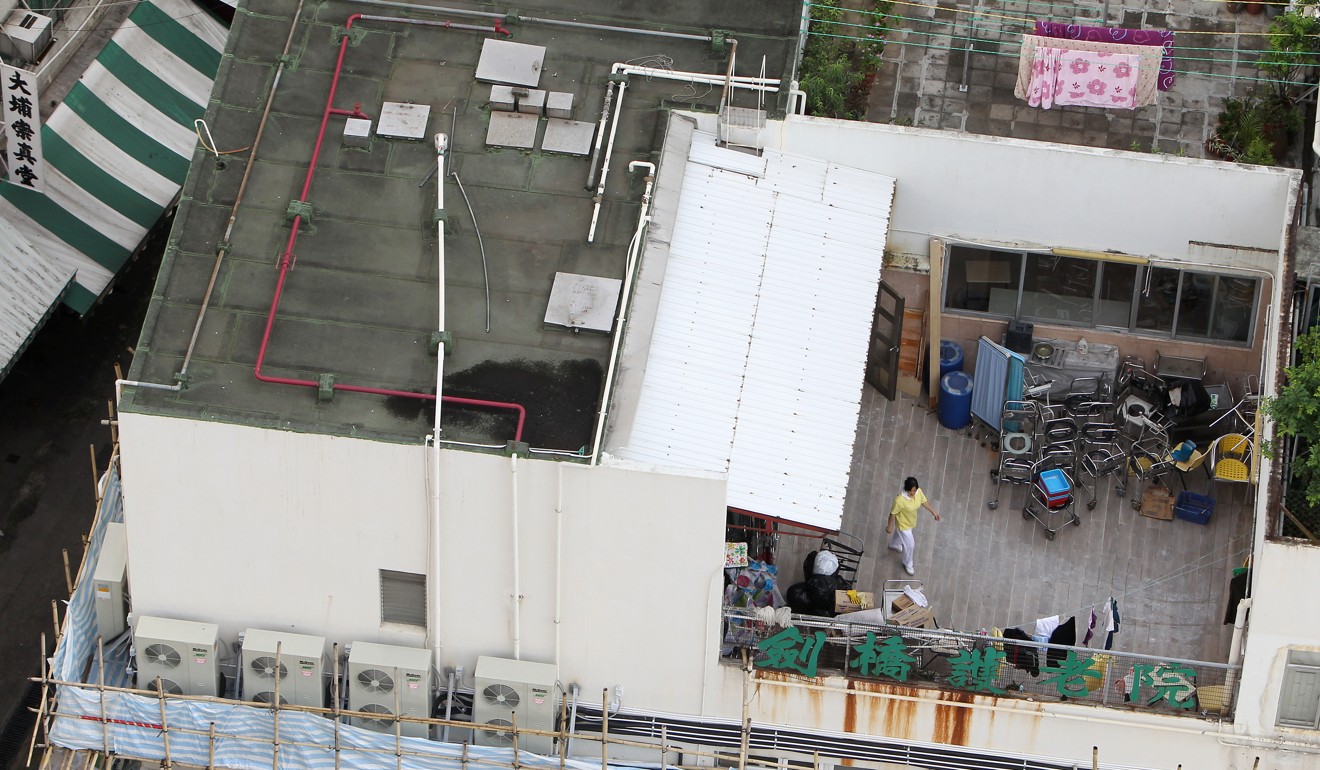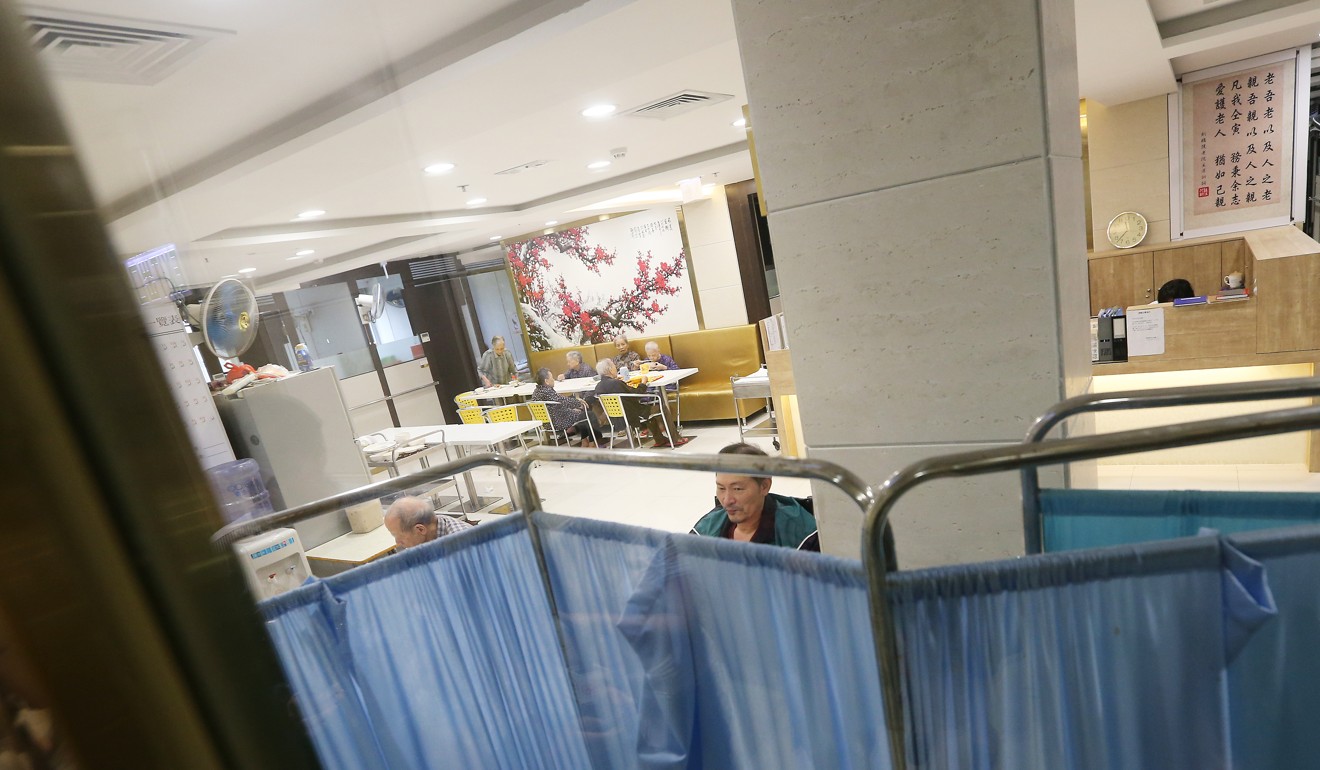
Hong Kong’s elderly failed by outdated laws and welfare department’s lax approach to protecting them, watchdog says in damning report
- Despite series of complaints between 2014 and 2018, not a single care home had its licence revoked
- Investigation reveals government department issued thousands of warnings each year
The Social Welfare Department has been accused of systematically failing to protect Hong Kong’s elderly population in a damning report from the city’s ombudsman.
On Thursday Connie Lau Yin-hing revealed that not a single care home had its licence revoked by the department over the past four years, despite there being a host of complaints about standards in the industry.
Instead, rather than prosecuting offenders, officials chose to issue warnings or order homes to take remedial measures, the ombudsman said.
Announcing the results of an investigation into the issue, Lau said that between 2014 and 2018 the department had issued 2,000 to 3,000 advisories a year, but not a single care home lost its licence.

“For warnings issued for incidents of a serious nature, such as a shortage of manpower, no timetable has been set as to when the homes need to have taken rectification action,” she said.
During the past four years, there was only one case in 2015 when the department decided to reject a home’s application to renew its licence. The ombudsman declined to name it, but public records showed that it was Cambridge Nursing Home (CNH) in Tai Po.
The city’s nursing homes have come under closer scrutiny after CNH was exposed for leaving its tenants naked, or half-dressed, in the open air for up to 1½ hours before staff took them to shower.
On Thursday, Lau said the department had issued 309 warnings to elderly homes in the 2014-15 financial year, 352 the following year, 466 in 2016-17, and only 139 last year. When the department did decide to prosecute, 39 resulted in convictions.
Care homes don’t have to feel like prisons, says boss of Chinese facility
Over the course of nearly three years, between July 2012 and March 2015, the department issued a warning or order for remedial action to CNH every three months.
The department did not revoke its licence, and it was only when the home needed it renewed that the department decided to act.

“There was a delay in taking enforcement action, or even an absence of enforcement action,” Lau said.
In February 2016, the department visited an unidentified home for the elderly to investigate accusations of abuse against residents.
The department found that the establishment had a shortage of manpower on four out of seven days a week. It also found records that showed staff working hours had been falsified.
Hong Kong should consider needs of elderly when deciding on future land supply
Lau said the department failed to properly act on its findings, and added that legislation governing the industry was outdated and had not been amended for 22 years.
Giving an example of where current laws were failing, senior investigation officer Lyon Li said there had been a case where a care worker had injected an elderly patient with five times the amount of medication they were supposed to receive.
However, because the incident involved the use of medicine, the department did not have the power to prosecute as it fell outside its jurisdiction.
The Social Welfare Department said the cases cited in the ombudsman’s report all happened about three years ago. The department had since beefed up resources and manpower to make sure the homes operated properly, adding there were now 68 elderly home inspectors, compared with only 44 in 2015.

Over the past three years, a private elderly home was inspected seven times a year on average.
In June 2016, the department set up a committee to look at how laws regulating elderly homes could be improved, the department said.
On Thursday, social welfare sector representative lawmaker Fernando Cheung Chiu-hung agreed with the report’s recommendations that the department should revoke licences when care homes committed serious violations.
“It will give people the impression that authorities are tolerating such serious violations, and allowing them to happen time and again,” Cheung said.
“By not taking action, elderly residents are left to suffer and fend for themselves in a terrible environment, which could lead to more victims getting hurt. The government should not shirk their responsibility in this matter.”
Cheung believed the government was afraid that nursing homes would have to close if rules were strictly enforced.
“They’re worried they would not be able to deal with the consequences of having to relocate so many elderly residents,” he said.
The lawmaker has proposed amending laws to give the government the power to assume control over any care home that has its licence revoked. He believed this approach would act as a stronger deterrent to companies running nursing homes, while minimising the impact on elderly residents.


